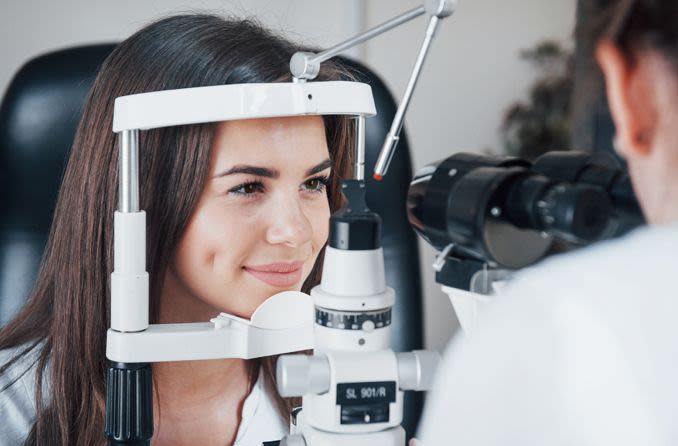All Categories
Featured
Table of Contents

Routine eye evaluations are crucial for keeping great vision and finding prospective eye wellness issues early. The regularity of these tests can vary substantially based on a person's age, way of life, and total health and wellness. Recognizing the advised routine for eye examinations can help ensure that people of any ages get ideal treatment and surveillance for their eye health.
Newborns and Toddlers (0-2 Years)
For babies and toddlers, eye tests are crucial for identifying any possible vision problems early on. The American Academy of Ophthalmology recommends that a child's very first eye exam ought to happen at around six months old. Throughout this first visit, the eye care specialist will examine the child's visual advancement and check for any evident eye issues.Following this very first examination, it is advised that children have an additional eye examination at age three. This browse through will certainly concentrate on examining the child's general aesthetic feature, consisting of eye positioning and the capability to track things. If no issues are identified, the next examination should be set up prior to the kid starts school, typically around age five or 6.
School-Aged Children (6-18 Years)
Routine eye tests should be set up every one to 2 years when kids get to institution age. Vision is essential for learning and advancement, and many schools perform vision testings. Nevertheless, these testings do not replace a detailed eye exam by an eye care specialist.For children included in tasks or sporting activities calling for significant visual emphasis, annual eye exams may be advisable. Additionally, if a kid shows indicators of vision issues-- such as trouble reading, squinting, or constant migraines-- a see to the eye physician must be scheduled asap.
Young Person (19-39 Years)
Young adults generally have fewer vision changes than older age, but regular eye exams remain essential. The general suggestion is to schedule an eye exam every 2 years during this period. However, people with particular risk factors-- such as a household history of eye condition, diabetes, or those that wear call lenses-- must think about annual eye examinations.Additionally, those who spend significant time on digital tools may experience electronic eye pressure. If signs such as dryness, fatigue, or obscured vision happen, it might be important to see an eye treatment specialist quicker.
Adults (40-64 Years)
Grownups aged 40 to 64 must set up eye tests every one to 2 years. Eye tests can also aid identify other typical age-related problems such as glaucoma, cataracts, and macular degeneration.If individuals in this age have risk elements like hypertension or diabetic issues, they might need even more frequent exams to check their eye health and wellness carefully.
Seniors (65 Years and Older)
For senior citizens, routine eye tests end up being also extra essential. The American Optometric Organization advises that people aged 65 and older have an eye examination at the very least as soon as a year.Final thought.
Comprehending the suitable schedule for eye examinations based on age is vital for maintaining optimal eye health throughout life. From babies to senior citizens, normal eye examinations play an essential duty in detecting issues early and ensuring that vision continues to be sharp. By sticking to these standards and speaking with an eye treatment professional, people can take aggressive actions towards protecting their vision and overall health and wellness. Whether it's a youngster's first visit or a senior's yearly examination, prioritizing eye treatment is a financial investment in lifelong well-being.Latest Posts
Experience Coastal Sophistication at Deauville Inn
Published Apr 09, 25
1 min read
A Luxurious Escape: The Claridge Indoor Swimming Pool
Published Feb 10, 25
1 min read
Experience the Boogaloo: Dining, Drinks, & Sports at FunCity Hotel
Published Feb 09, 25
2 min read